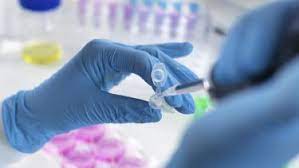
Regenerative medicine is the process of replacing human and animal cells, tissues, and organs with new ones. The goal is to cure disease and promote health. It is a growing field that is expected to revolutionize health care in the coming years. This type of treatment is an excellent option for patients who have experienced organ failure or other debilitating conditions.regenerative medicine near me is an excellent resource for this.
The process of repair is not pleasant for patients, and it can lead to scarring. However, the main goal of most regeneration therapies is to restore function to the affected organ. These techniques can also be used to treat congenital problems, such as thalassaemia, corneal absence, or a hole in the heart.
A key challenge for regenerative medicine is the cost. In some cases, the cost of regenerating a patient’s cells is prohibitively high. The process of gene transfection may be a more cost-effective alternative, but it raises regulatory concerns. Gene-transfer techniques can enhance the properties of the cells in a controlled manner.
A variety of regenerative treatments are in the process of being developed. These therapies involve the use of stem cells, materials, and de novo generated cells to replace missing tissue or contribute to healing a damaged organ. While several of these treatments have been approved for commercial use, others are still under study in preclinical and clinical settings.
A key step in the process of regenerative medicine is the discovery of a new source of stem cells. These cells are derived from a patient’s own fat, blood, or bone marrow, and have the potential to direct healing cells to the site of injury or inflammation. Researchers are discovering new ways to concentrate these cells and secreted factors at the site of injury and disease to promote healing without invasive procedures.
Regenerative medicine has many applications beyond disease management. It involves a variety of medical specialties, from prenatal surgical interventions to life-long treatments for degenerative conditions. Through these treatments, the body’s self-repair response is prompted, restoring a patient’s health and quality of life.
Regenerative medicine has been proven to help relieve pain caused by musculoskeletal conditions. While most musculoskeletal tissues aren’t able to heal on their own, the use of regenerative medicine can speed up the healing process after orthopedic surgery, ligament repair, and meniscus repair. This type of treatment can use a patient’s own body tissues or donated tissue.
In addition to replacing damaged organs and tissues, regenerative medicine can help normalize a wide range of congenital defects and chronic diseases. Various preclinical and clinical studies have suggested that this type of treatment has great potential. Some of these therapies have already been approved by the FDA. In addition to treating injuries and chronic illnesses, regenerative medicine can also help patients with cancer.
CONTACT INFO:
QC Kinetix (Midland)
3300 N A St, Bldg 8,
Suite 125 Midland, TX 79705
Phone No. :(432) 203-6622
